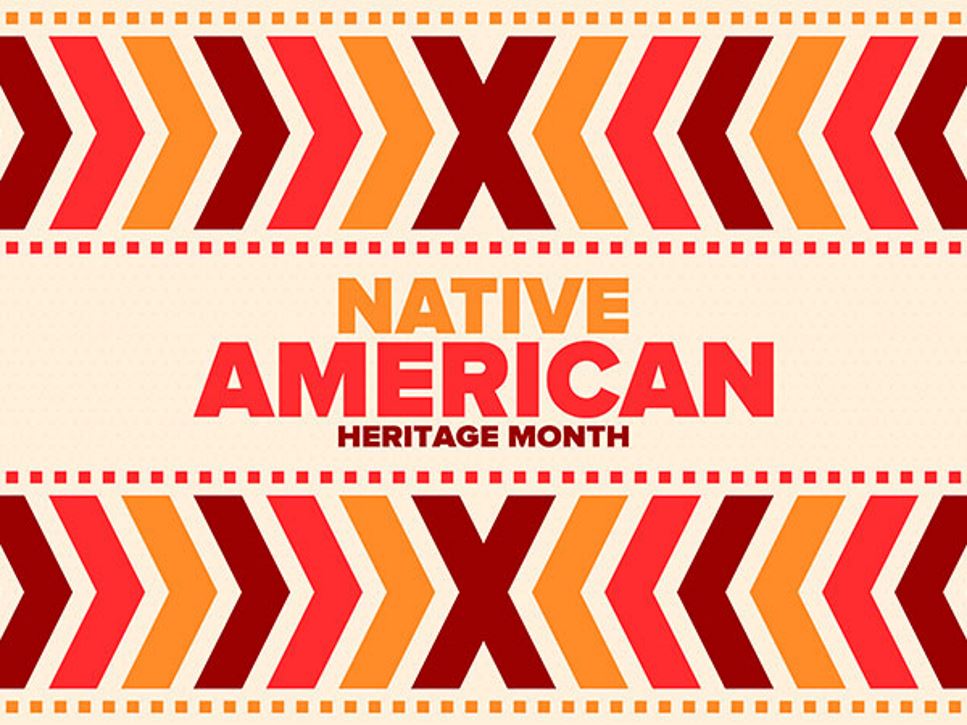In 1915, a proclamation was issued declaring the second Saturday of May "American Indian Day." However, since the 1990s, November has been recognized as Native American Heritage Month in the United States. November provides many opportunities to learn about and celebrate Native Americans and Indigenous peoples throughout the centuries.
Large organizations and local groups offer community events focused on the history of various tribes in the Americas, as well as obstacles faced by native communities and tribal nations, such as food and water justice, land acknowledgements and repatriation. Some additional ways to observe Native American Heritage Month include learning about native plants and various types of cuisine, music, languages, arts and culture, which can vary among the more than 500 federally recognized American Indian and Alaska Native tribes.
This month and throughout the year, celebrate Native Americans and Indigenous peoples who have made, and continue to make, significant contributions to public health and other areas of life.
Here are five ways we all can celebrate Native American Heritage Month:
- Learn the history of Native American foods that are now eaten all over the world. It's estimated that 60% of the world's crops originated from the Americas. Learning about the cultural significance and evolution of foods previously only known by Indigenous peoples can help cultivate a deeper appreciation and understanding of their history.
- Look for collections of Native American history and art. The biggest streaming video platforms — as well as free video collections online — often promote exhibits to celebrate Native American Heritage Month. One example is the Native Cinema Showcase, which is an online event hosted by the Smithsonian's National Museum of the American Indian, and features films of Native nations from various countries, including the U.S.
- Read Native American authors. A variety of books and resources— including nonfiction, fiction, cookbooks, children's literature and poetry — offer information and insight into the experience and culture of Native American and Indigenous people. Check your local library to find out how they are celebrating Native American Heritage Month. Many libraries will have curated collections of titles for all ages and reading levels.
- Learn about and advocate for collaboration, development, diversity and inclusion. Encourage local and national governments to prioritize representation of Native Americans. The Academy's Inclusion, Diversity, Equity and Access (IDEA) Action Plan is a sustainable, living document designed to move the dietetics profession toward an increasingly welcome and inclusive future. As such, we support legislation designed to eliminate racial and ethnic health disparities and chronic disease.
- See a registered dietitian nutritionist. Whether you are looking to support your personal health or your family's health, use the Academy's Find a Nutrition Expert tool to locate an RDN offering in-person or telehealth services in your area. Additional resources may be available for individuals who live on a reservation or tribal land. More information can be found through the federal government's Indian Health Service.
For more information on Native American Heritage Month, visit:
- National Museum of the American Indian
- National Park Service — Native American Heritage Month
- The Library of Congress — Native American Heritage Month
Recommended Native American health, wellness and nutrition websites:
- Centers for Disease Control and Prevention
- Tribal Health
- MedlinePlus
- U.S. Department of Agriculture
- Food and Nutrition Service, Food Distribution Program on Indian Reservations
- Office of Tribal Relations
- U.S. Department of Health and Human Services
- Indian Health Service
Note: This list is not all-inclusive. The Academy of Nutrition and Dietetics has not participated in the development of the sites listed and does not exert any editorial or other control over the sites or content.
References
Find a Nutrition Expert
Looking for credible nutrition information and recommendations? The Academy of Nutrition and Dietetics' network of credentialed food and nutrition practitioners are ready to help!

